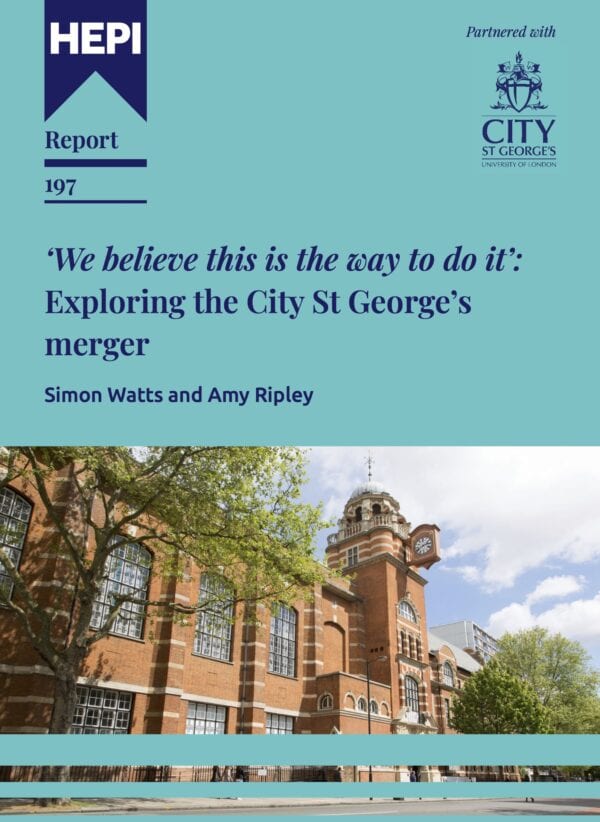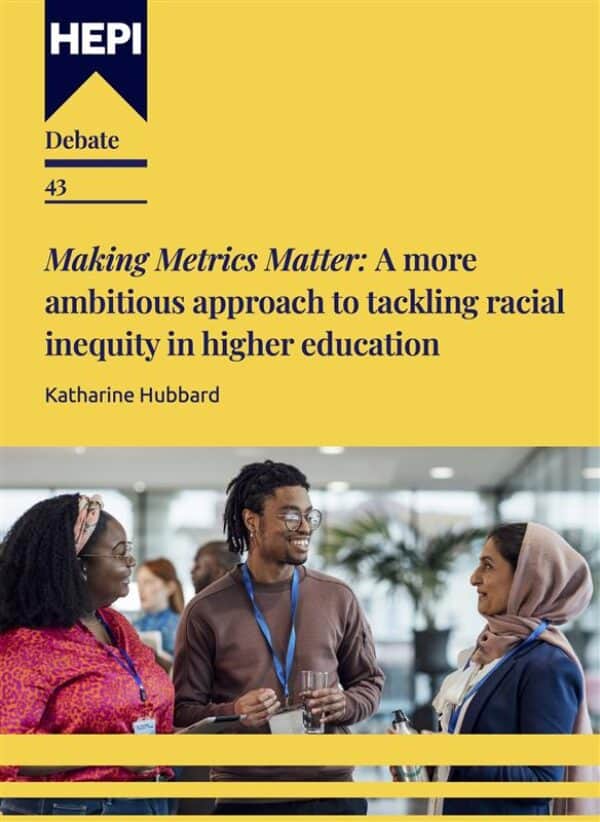What now for widening access?
- An initial response to yesterday’s Curriculum and Assessment Review from HEPI Director, Nick Hillman, is available on the HEPI website here.
- Today’s blog was kindly authored by Martin Webster, Director of the National Education Opportunities Network (NEON). It is the fifth blog in HEPI’s series responding to the Post-16 Education and Skills white paper. You can find the other blogs here, here, here, and here.
Since the Labour Party formed the Government in 2024, things have undoubtedly changed for higher education and specifically widening access. At the Labour Party Conference in 2024, there was a feeling of optimism with the Minister for Skills, the Rt Hon Baroness Smith, describing widening access as the Government’s number one priority for higher education. We now have a Government that not only believes in the importance of higher education but is putting a new emphasis on both expanding access and improving the outcomes of disadvantaged students.
This ambition for widening access has now been crystallised in the recently published Post 16 Education and Skills white paper, which lays out the key steps that will be taken, the main ones being:
- increasing the maintenance loan in line with forecast inflation each academic year.
- introducing the Lifelong Learning Entitlement to include modular funding, for both full and part-time study.
- reintroducing targeted, means-tested maintenance grants by the end of this Parliament.
- reforming the regulation of access and participation plans to allow an approach where the Office for Students (OfS) can be more risk-based with an expectation that providers will continue to strengthen evaluation.
- bringing together a Task and Finish group of sector experts, charities, OfS, and UCAS to consider how the system can best widen access.
- demonstrating a commitment to widening access to postgraduate level studies.
All of the above demonstrate the importance that the current Government are placing upon widening access and lays out their expectations for change, a change to a more equitable higher education system. Whilst there may be some who critique some of the steps outlined, and may feel they do not go far enough, if the higher education sector can make these changes, we will end up producing better outcomes for disadvantaged learners.
But…
Westminster, we have a problem
It is no secret that the higher education sector is under pressure with providers trying their hardest to ensure they can maximise efficiency from limited resources. Nowhere has this been felt more keenly than within widening access. Over the past couple of years, the National Education Opportunities Network (NEON) started to hear anecdotes from our members about ‘efficiency measures’ that were being taken. These ranged from recruitment freezes on their teams and reductions in dedicated budgets to staffing reorganisations where certain roles, and in some cases whole widening access teams, were being put at risk of redundancy. In the spring of 2025, we therefore surveyed NEON members in order to try to ascertain a more accurate picture of the extent of the problem.
Thirty six of our members responded, and whilst the results may not be statistically significant, they indicate a concerning trend. For the 2025/26 financial year 58% reported a reduced level of financial resources for widening access, and 58% reported a reduced level of staffing resources.
Even within NEON we have seen some of our members unable to renew their membership with us, not because they do not feel their membership is not giving them and their colleagues benefits, but because they have so little available budget that they cannot afford, or are not allowed to invest in, the relatively modest subscription amount.
These findings should concern both the Government and policymakers. Despite being the number one priority for higher education, widening access budgets are being diverted within institutions, sometimes due not to a lack of commitment, but due to necessity. Staffing is being cut and, in one case that we know of, this has included the removal of dedicated evaluation colleagues, an area that the Government are placing even greater emphasis upon. Higher education providers have made a range of commitments in their Access and Participation Plans, and those commitments are at serious risk of not being met.
As one anonymous NEON lead member stated in their response to our survey:
It is increasingly difficult to prioritise widening access activity over such things as recruitment activity when the University’s most pressing need is to balance the books. The resource for widening access will be reduced and we will simply be unable to maintain the level of current activity. This will of course have a disproportionately negative impact on under-represented and hard to reach groups.
Another NEON lead member commented:
The reduction in [institutional] funding means we’re only able to reach a fraction of the disadvantaged learners who would benefit from our outreach offer – we’re currently working with approximately 40% of the schools in our region due to capacity. Of the remaining 60%, over 50% of those have average or higher than average numbers of PP learners.
The Task and Finish group will undoubtedly come up with an excellent set of recommendations, but the reality is that, on the ground, there are even fewer colleagues to deliver the important work that is taking place across England to ensure it is effectively evaluated. Steps need to be taken now to ensure widening access is protected and that providers can support the Government’s ambitions.
So what should the Task and Finish group consider?
- ensuring that funding for widening access is ring-fenced and subject to further accountability measures;
- establishing an expectation that all providers work with learners across all age groups, from primary school level up to and including mature learners;
- considering how the evaluation of access and success initiatives can be strengthened for all providers, including small specialist providers, through a regional approach delivered by collaborative partnerships;
- considering how widening access can be established as a strategic driver within schools and colleges; and
- developing greater, direct communication between the Department for Education and higher education providers to ensure the Government’s strategic priorities are being met and greater understanding can be developed.
Widening access is at a crossroads. We can stand by and watch progress continue to wane away, or we can put measures in place to continue to build upon the hard of work of colleagues across the higher education sector and improve equitable access and success.







Comments
Paul Wiltshire says:
Why are we so hell bent on widening access, if all we are doing is throwing more young adults into the Graduate Debt Trap?
Read my recent research at universitywatch.org
Reply
Andy Long says:
The list of steps set out from the white paper misses an important point: to quote directly “Maintenance grants will be funded by a new International Student Levy”. The reintroduction of maintenance grants is widely supported by the HE sector, provided of course that they provide additional funding rather than merely displacing loans. But paying for them in this way will only add to the financial pressures on the sector, taking away more than is gained by further increases to the home UG tuition fee cap. That will exacerbate all of the problems set out above in terms of the ability for institutions to support widening access and success. Perhaps the Task and Finish group will have something to say about that too!
Reply
Add comment